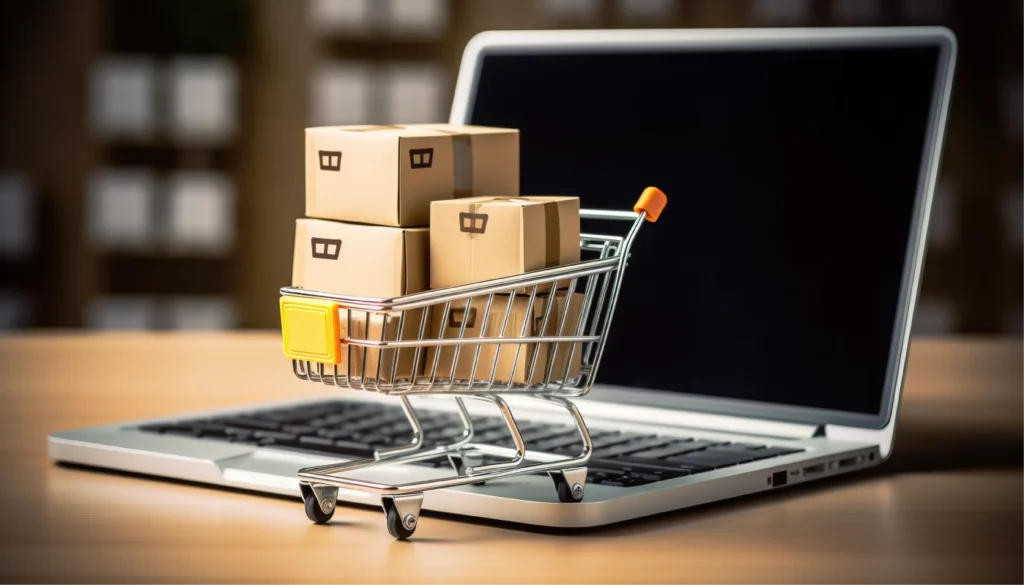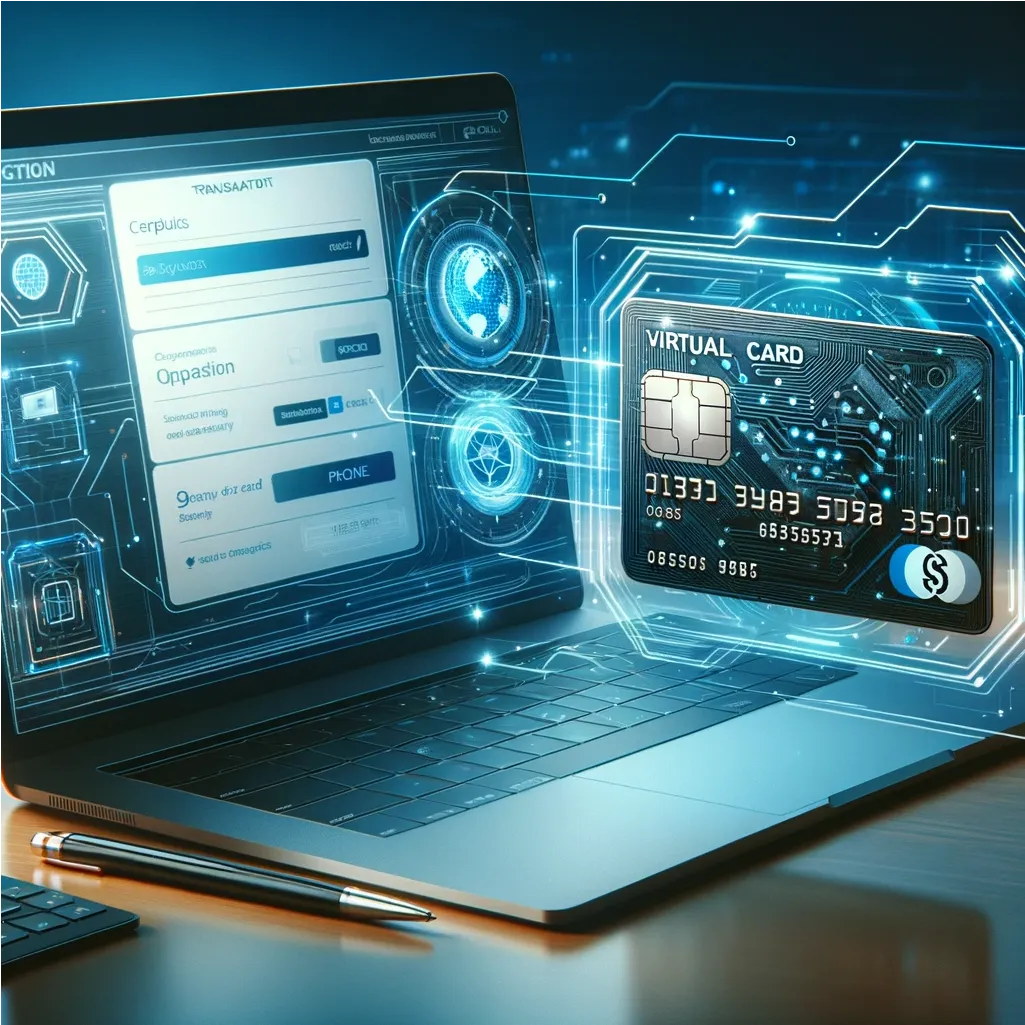The evolution of credit card usage has transformed the way businesses transact. Over 90% of Americans now own at least one credit card, marking a significant shift from traditional payment methods like checks and money orders. Fusion Payments stands at the forefront of this transformation, offering cutting-edge B2B credit card processing solutions tailored for modern businesses.
While the first universal credit card introduced by Diner’s Club in 1950 revolutionized consumer payments, the B2B sector has witnessed its own set of challenges and innovations. Traditional B2B payment methods, often cumbersome and time-consuming, are now being overshadowed by the convenience and security of credit card processing. But what does this mean for businesses today?
At Fusion Payments, we understand the intricacies of B2B transactions. Unlike straightforward Business-to-Customer (B2C) or Person-to-Person (P2P) payments, B2B payments demand a higher level of precision, security, and adaptability. With the rise of digital technology, businesses no longer need to rely on outdated payment techniques. Instead, they can leverage the power of advanced B2B credit card processing to ensure timely, secure, and efficient transactions.
Whether you’re a retailer, wholesaler, corporation, or startup, navigating the B2B payment landscape can be daunting. But with Fusion Payments, you’re not just adopting a payment solution; you’re embracing a partner dedicated to propelling your business forward. Dive in as we demystify B2B credit card processing, explore its myriad benefits, and showcase how Fusion Payments is setting new industry standards.
Business-to-Business credit card processing, commonly abbreviated as B2B, refers to transactions or interactions that occur between two businesses, as opposed to those between a business and an individual consumer (B2C).
This can encompass a wide range of activities, from the sale of products or services to collaborations and partnerships. Let’s delve deeper into the intricacies of B2B:
This feature allows businesses to automate the entire process of managing and paying their bills. By automating accounts payables, businesses can ensure timely payments, reduce manual errors, and streamline their financial operations.
Modern B2B payment platforms often come equipped with real-time reporting tools. These tools provide businesses with instant insights into payment statuses, transaction histories, supplier acceptance rates, and other crucial metrics, helping them make informed decisions.
Some platforms offer features that automatically handle payments to suppliers. Once the payment instructions are uploaded, the platform processes all payments, whether they are single or recurring. This ensures that vendors are paid on time, and invoices are settled and reconciled efficiently.
These are comprehensive solutions that combine various payment methods, such as ACH transfers, credit card payments, and wire transfers, into a single platform. Such integrations allow businesses to choose the most suitable payment method for each transaction, enhancing flexibility and efficiency.
Given the rise of cyber threats, security is paramount in B2B transactions. Modern B2B payment solutions often feature secure payment gateways that ensure the safe and efficient handling of online transactions. These gateways act as intermediaries, securely transmitting transaction data between businesses and payment processors or banks.
Business (B2B) transactions stand out for their distinct nature and unique challenges. Unlike business-to-consumer (B2C) transactions, which often cater to impulsive wants and one-time purchases, B2B transactions are typically rooted in recurring needs and strategic decisions.
Established Relationships: At the heart of B2B commerce are long-term relationships. Most B2B merchants have established, enduring partnerships with their clients. These relationships are built on trust, mutual benefit, and a deep understanding of each other’s business needs. The transactions are not just about exchanging goods or services for money; they’re about fulfilling commitments, meeting expectations, and ensuring the smooth operation of both businesses involved.
Recurring Needs: B2B transactions often cater to recurring operational needs. Whether it’s a manufacturer sourcing raw materials, a tech company subscribing to cloud services, or a retailer restocking inventory, these needs are continuous and predictable. The payment solutions for such transactions must be reliable, efficient, and flexible to accommodate varying payment terms and conditions.
Strategic Decisions: Unlike the spontaneous nature of many B2C purchases, B2B transactions are the result of strategic decisions. Companies invest time in research, negotiation, and planning before finalizing a B2B transaction. The payment methods chosen reflect this deliberation, ensuring that they align with the company’s financial strategy and cash flow management.
Wholesalers and Distributors: Companies that sell products in bulk to retailers or other businesses. They often have large invoice amounts and require flexible payment terms.
Manufacturers: Businesses that produce goods and sell them to distributors or retailers. They often deal with large transactions and need efficient payment methods.
Service Providers: Companies that offer services to other businesses, such as IT support, consulting, or marketing services. They may have varying invoice amounts and require recurring payments.
Real Estate and Property Management: Companies that lease office spaces or manage properties for other businesses. They often have monthly or annual payment terms.
Government Contractors: Businesses that provide goods or services to government agencies. They often have specific payment requirements and longer payment cycles.
E-commerce Platforms: Online platforms that cater to other businesses, offering bulk products or specialized services.
Software and Technology Companies: Businesses that offer software solutions, cloud services, or other tech-related services to other companies.
Supply Chain and Logistics: Companies involved in transporting goods, warehousing, or managing supply chains for other businesses.
Educational Institutions: Universities or training centers that offer courses or training programs to employees from other companies.
Healthcare Providers: Hospitals or clinics that provide specialized services to employees of other businesses or to other healthcare institutions.
Companies Using/Or Customers use Corporate, Business, Purchase, or Fleet Cards: These cards are often used for B2B transactions, and companies that accept these cards can benefit from specialized B2B payment processing solutions.
The top national and reginal banks trust us to serve as their partner to develop card processing relationships with their valued customers. From automated invoicing, buyer-initiated payments and discounted card interchange rates, we make it faster, more efficient and more profitable for you to accept payments the way customers want to pay (cash acceleration).
Fusion ACH partners with integrated payables solution for banks and B2B customers Across the United States and Canada. We can pass time and cost savings on to you.
The Priority Card enables authorized transactions for purchasing, travel, and fleet management, and more. It's a convenient physical card program with which you can save time, manage and control spending.
We analyze your monthly spending and design an electronic payables strategy for maximum cash back to you, the buyer. We leverage our expertise and scale to activate supplier acceptance of your preferred electronic payment method. We do the heavy lifting to enroll suppliers so that our customers do not have to. We do this through:

Every detail can be a game-changer. Fusion Payments harnesses the power of Level 2 and Level 3 data to elevate your company’s payment processes. By capturing and utilizing this enriched transaction data, we not only ensure you benefit from reduced processing costs but also empower you with detailed insights for better financial decision-making. Dive into a world where enhanced security meets unparalleled efficiency, all tailored to fit the unique needs of your business.

Level 2 and Level 3 data refer to the additional information provided during a credit card transaction. While basic transactions (Level 1) only require standard information like card number and expiration date, Level 2 and Level 3 transactions provide more detailed data. This can include tax amounts, customer codes, product codes, and more.
Interchange rates, often referred to as the “swipe fees,” play a pivotal role in the world of B2B credit card processing. These rates are set by card networks like Visa, MasterCard, and others and are the fees that merchants pay to card-issuing banks for every credit card transaction.
Interchange rates, often referred to as the “swipe fees,” play a pivotal role in the world of B2B credit card processing. These rates are set by card networks like Visa, MasterCard, and others and are the fees that merchants pay to card-issuing banks for every credit card transaction. Extra data provided by your payment processor helps to eliminate risk factors involved in the authorization request. This lvl 2 and 3 data allows for a decrease in interchange fees.
For B2B merchants, providing additional transaction data (Level 2 and Level 3 data) can lead to reduced interchange rates. This data includes detailed information about the purchase, such as item descriptions, quantities, tax amounts, and more. By supplying this data, merchants can qualify for lower B2B interchange rates, leading to significant cost savings.

Having a partner that understands the intricacies of credit card processing is invaluable. Fusion Payments, with its cutting-edge solutions and industry expertise, is committed to ensuring your business thrives. From optimizing interchange rates to providing seamless transaction experiences, we’ve got you covered. Don’t leave your B2B payment processes to chance; choose Fusion Payments and experience unparalleled efficiency, security, and cost savings. Join the Fusion Payments family today and let us propel your business to new heights.
Have a Question or Need Assistance? Reach Out to Our Team for Expert Help

Check out the dynamic world of B2B marketplaces with our featured article from Digital Commerce 360. See how the landscape has transformed from a handful of platforms to over 500 specialized marketplaces in just 16 years. This article sheds light on the exponential growth and diversification of B2B e-commerce, highlighting key trends like the increasing number of vertical markets, the rapid addition of new features and functions, and the significant role of B2B credit card processing in facilitating seamless transactions. As B2B marketplaces continue to be the fastest-growing sales channel in digital commerce, understanding these trends is crucial for businesses looking to thrive in this evolving market. Learn more about how B2B credit card processing is not just a transactional tool, but a pivotal element in the growth and efficiency of modern B2B marketplaces.
Explore the cutting-edge developments in B2B credit card processing with our insightful article from PYMNTS. As the digital wave sweeps across the business world, virtual cards are emerging as a dominant force in B2B transactions, projected to reach a staggering $6.8 trillion in value by 2026. This article delves into the significant impact of virtual cards in streamlining payments, enhancing security, and offering financial benefits like interchange revenue. It also highlights the burgeoning role of super apps in reshaping payment experiences, providing a comprehensive view of the future of global B2B payments. With insights into the challenges of reconciliation and the potential of digital assets in cross-border transactions, this piece is a must-read for businesses navigating the evolving landscape of B2B credit card processing. Stay ahead of the curve in the digital transformation of B2B payments with our featured article.

Join the Fusion Payments community, you’ll gain exclusive insights into industry trends, news, and updates tailored for the Orlando market and beyond. Subscribe to our newsletter and be the first to know about our latest innovations, expert advice, and special offers.

With over 10 years of dedicated service, Fusion Payments is known for our reliability and expertise in credit card processing. Based in Orlando, we proudly manage millions monthly in payments.
© 2023 Created with Aeos Web Design